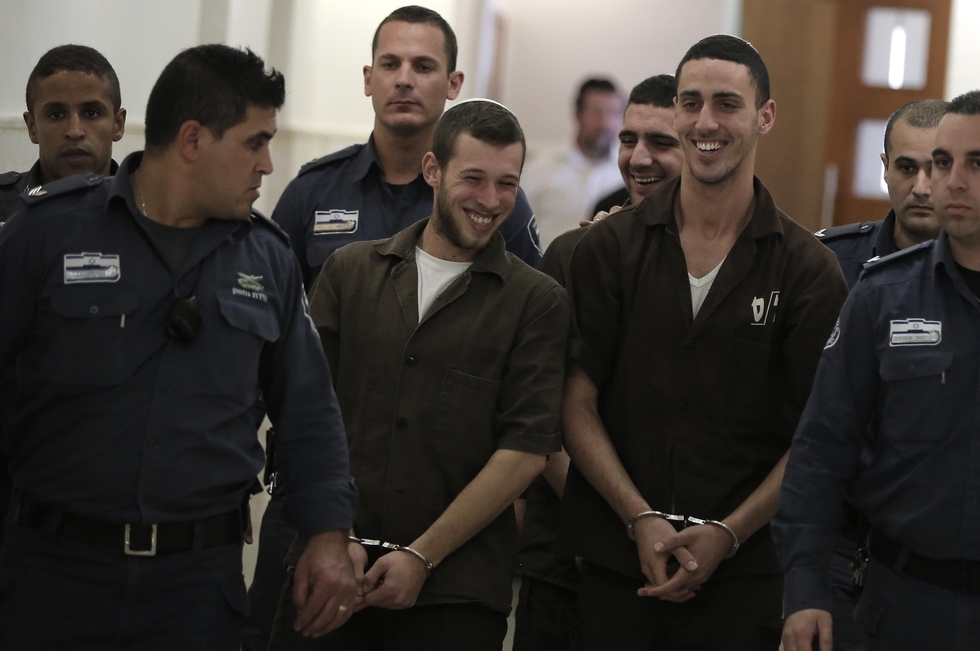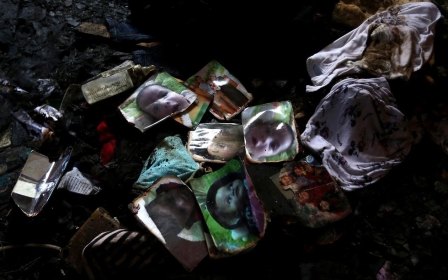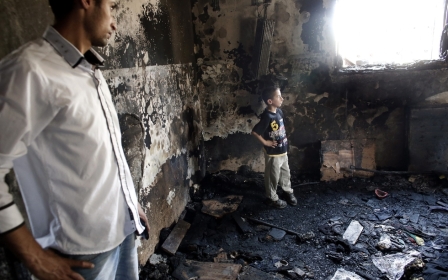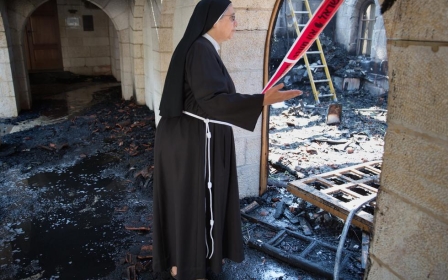Israeli jailed for arson attack on bilingual Jerusalem school

A far-right Israeli has been jailed for three years for an arson attack on an Arabic-Hebrew bilingual school in Jerusalem.
Yitzhak Gabai, 23, was found guilty at the Jerusalem District Court of the November 2014 attack on the Max Hayne Hand-in-Hand school, where a first-grade classroom was badly damaged and slogans in Hebrew reading "Death to Arabs" and "There's no coexistence with cancer" were scrawled on the walls.
Prosecutors had recommended a sentence of between four and seven years for Gabai and said they planned to appeal, calling the jail term too light.
He was given two years for arson, 10 months for inciting violence on Facebook and two months for weapons possession.
The attack sparked a wave of condemnation and took place amid months of rising tensions and unrest in Jerusalem.
Gabai's accomplices, Nahman and Shlomo Twitto, 19 and 21, have already been sentenced to two and two-and-a-half-years in prison respectively.
Lehava activists follow the teachings of the late Meir Kahane, a virulently anti-Arab rabbi whose Kach party was banned in Israel.
Israeli Prime Minister Benjamin Netanyahu and other senior officials condemned the attack at the school, which is on the Green Line separating west Jerusalem from the annexed eastern sector, and has 624 pupils.
Middle East Eye propose une couverture et une analyse indépendantes et incomparables du Moyen-Orient, de l’Afrique du Nord et d’autres régions du monde. Pour en savoir plus sur la reprise de ce contenu et les frais qui s’appliquent, veuillez remplir ce formulaire [en anglais]. Pour en savoir plus sur MEE, cliquez ici [en anglais].




